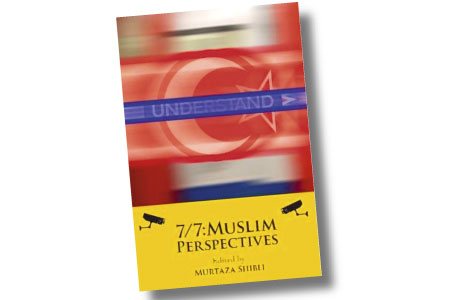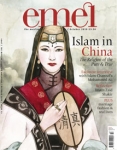
7/7: Muslim Perspectives
Issue 73 October 2010
BOOK
by Murtaza Shibli
Review by Soraya Zahid
7/7: Muslim Perspectives is a book that offers direct answers to the questions asked regarding British Muslims; their loyalties since 7/7 and their religion. It offers personal accounts from a number of individuals of different creeds, professional backgrounds, age and gender on what 7/7 means to them and how it has affected them. This is an insight not covered by the media, despite carrying utmost importance given the damaging stereotypes attributed to Muslims after the incident. The media has a part to play in this no doubt, opting often for the distorted views of a fringe group. However, Murtaza Shibli offers an alternative discourse, one that attempts to dispel misconceptions about Islam as well as showcase a variety of reflections regarding that fateful day.
Shibli has skilfully compiled this anthology of personal stories and many readers will extend heartfelt appreciation to these contributors who share their innermost hopes and fears, allowing us to move forward.
It is made clear from the outset that terrorism and its advocators have no place in Islam and many of the contributors make it a point to mention that being British and Muslim is indeed no contradiction and that in many ways, their faith has actually been their influence in participating positively in British society. It is difficult to critique the contributions as they are personal accounts, however the range of opinions and points raised reflect the heterogeneous makeup of the Muslim community.
One experiences a strong sense of sorrow for those whose lives were unjustly taken by 7/7 whilst reading the book, as well as sadness about the vilified portrayal of Islam in Britain, a way of life that has been hijacked by a small number that represent no one, with critical consequences for community cohesion and tolerance.
7/7: Muslim Perspectives honours those who have died and dismisses the 7/7 perpetrators as disconnected and misinformed from the wider Islamic community. It offers a hopeful and optimistic outlook to how society must come together to live in harmony side by side and challenge those who seek its destruction. To quote one contributor, ‘we are not so different; our struggles, hopes and fears are the same as everyone else’s’, which reflects upon how Islam is not the enemy. The question here is of humanity; you are either for humanity or against it.
Bookmark this |
|
Add to DIGG |
|
Add to del.icio.us |
|
Stumble this |
|
Share on Facebook |
|
Share this |
|
Send to a Friend |
|
Link to this |
|
Printer Friendly |
|
Print in plain text |
|


Comments
0 Comments